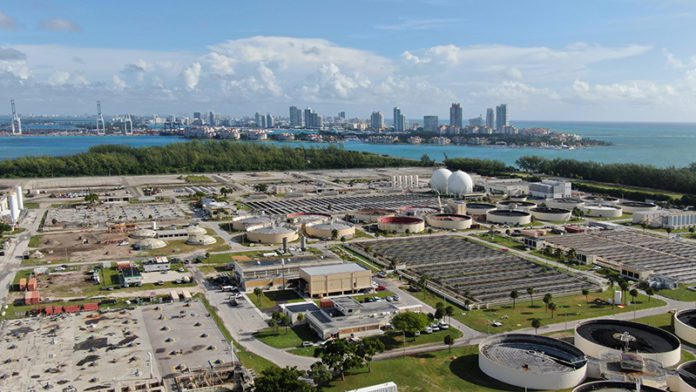|
Getting your Trinity Audio player ready...
|
While the book has just closed on Fiscal Year 2021-2022, the Miami-Dade Water and Sewer Department (WASD) can claim a year for their record books due to the landmark investment of more than $550 million in critical projects in a single fiscal year as part of its multi-year, $7.8 billion Capital Improvement Program (CIP).
With the support of Miami-Dade County Mayor Daniella Levine Cava and her administration, WASD has successfully accelerated many critical projects. By investing in state-of-the-art utility upgrades, the department is proactively planning for future population growth, while also safeguarding the community’s natural resources and Biscayne Bay.
Through these infrastructure enhancements, the department accounts for climate change and sea level rise to ensure that our system is resilient and sustainable as well as implementing infrastructure hardening measures enabling treatment plants to operate during severe weather events.
WASD staff takes specialized infrastructure experience to Southwest Florida to aid in Hurricane Ian water utility recovery
Access to clean, reliable, and safe drinking water is the foundation for a livable and thriving community. That is why more than 20 WASD water professionals are currently in Ft. Myer’s Beach, aiding the local water utility recover from the aftermath of Hurricane Ian.
During the next week, these first responders, who are specialized in different fields, will be assisting the city with re-establishing water services by evaluating the water distribution system and repairing leaks, in addition to troubleshooting and repairing two critical booster stations.
South Florida has been fortunate enough to not experience such an extreme storm since 1992’s Hurricane Andrew. However, after witnessing the suffering in Puerto Rico, the Keys, Southwest Florida, and many other coastal cities and islands, it has been more than enough to propel our community to invest in our infrastructure and ensure resilient systems so that we are ready and prepared to weather the storm for when that day comes.
Rising seas and storm surge are known to damage wastewater treatment facilities and drinking water infrastructure. WASD is operationalizing flood design guidelines that incorporate climate change information for its wastewater treatment plants as part its CIP.
The department’s long-term plans include the continuation of future-proofing our facilities and infrastructure hardening that will ensure on-going uninterrupted service delivery to our 2.4 million customers.






